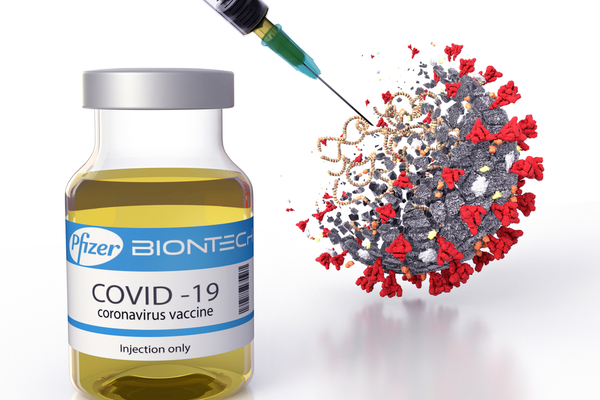The Centers for Disease Control and Prevention (CDC) and the Food and Drug Administration (FDA) approved the distribution of the third Pfizer shots earlier this week, which means that those eligible can receive a third, booster dose of the Pfizer-BioNTech COVID-19 vaccine.
But who, exactly, is eligible?
Under new federal guidelines, boosters will be available to four groups of people fully vaccinated with the Pfizer vaccine:
- Those who are 65 and older
- Those living in a long-term care facility
- Those 18 to 64 who are at high risk of severe COVID-19
- Those 18 to 64 who are frequently exposed to COVID-19 because of work or other obligations
A key CDC advisory committee did not support boosters for people in the fourth category, but CDC Director Dr. Rochelle P. Walensky overruled it, siding with the FDA in favor of boosters for nurses, teachers and others with high occupational risk.
To be eligible, people also must have received their second Pfizer shot at least six months before seeking the booster. The CDC recommends receiving a booster within eight months of the second dose, however.
Do you need a Booster?
Although the vaccines have been available for only a matter of months, studies show that their effectiveness can dip over time — a phenomenon known as waning immunity. The vaccines are still providing protection against severe illness, hospitalization and death, the CDC says, but “with the Delta variant, public health experts are starting to see reduced protection against mild and moderate disease.”
Nevertheless, the CDC isn’t recommending the booster shot for everyone in the eligible groups yet. Instead, the agency says that the people who should receive the booster are those who are at last 65 years old, who live in a long-term care facility, or who are 50 to 64 years old with underlying medical conditions. It adds that others in the eligible groups need to consider their individual benefits and risks when deciding whether to obtain a third shot.
In addition to the groups eligible for Pfizer boosters, the CDC recommends that people with moderately to severely compromised immune systems get a third dose of the Pfizer or Moderna vaccine 28 days after their second shot to help build more resistance.
Can you mix and match vaccines?
Not yet.
If you received the Johnson & Johnson vaccine, you are currently ineligible for a booster shot, according to the CDC. Because the vaccination mechanics of Johnson & Johnson’s shot are different from Pfizer’s and Moderna’s, the CDC says more research needs to be done before deciding whether it’s safe and effective to mix the two types.
When and where can you get your booster?
You can start getting your shots right away at whatever facility administered your previous doses. You can make an appointment or find a site that provides shots on demand. Pharmacies and community clinics already have doses on hand. Proof of prior Pfizer vaccination must be provided at the time of your third dose, either digitally or with your vaccination card.
—
Photo Credit: Orpheus FX / Shutterstock.com
